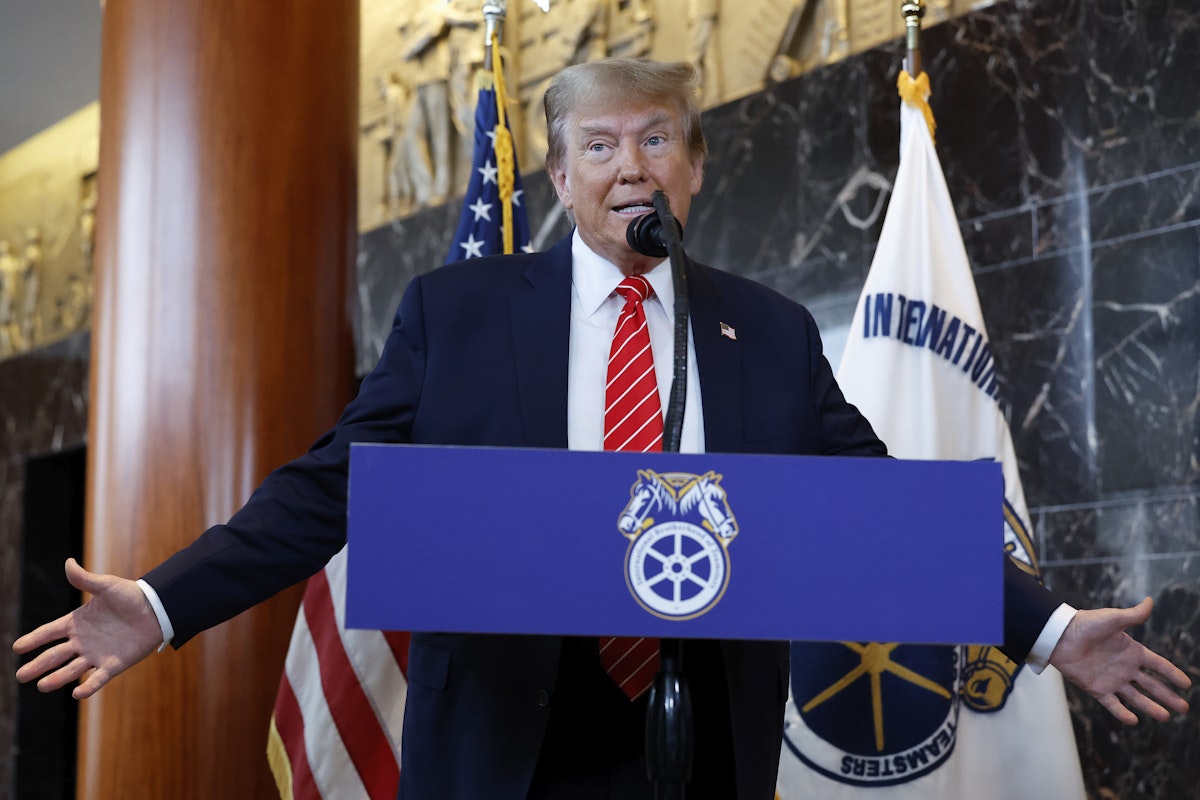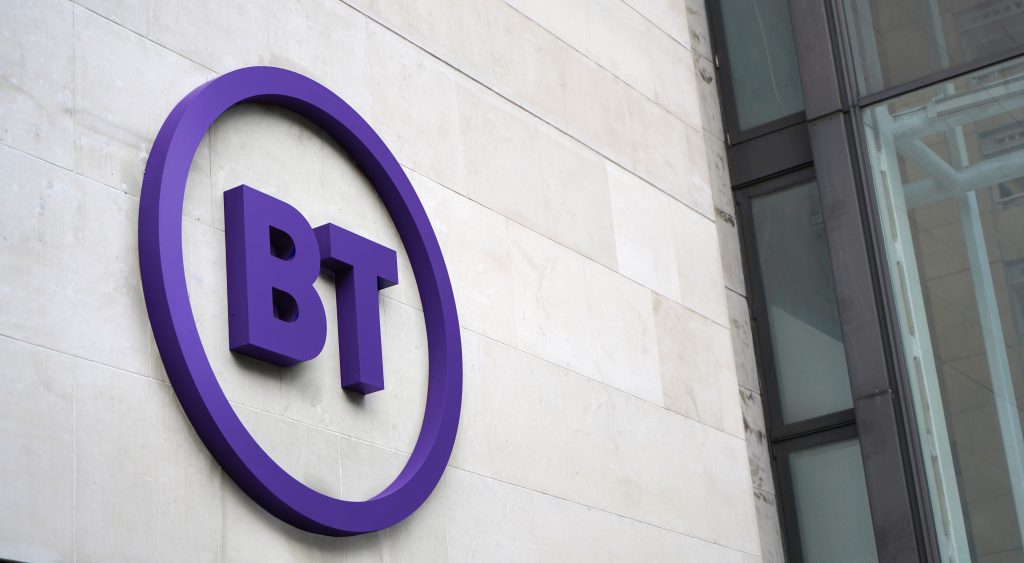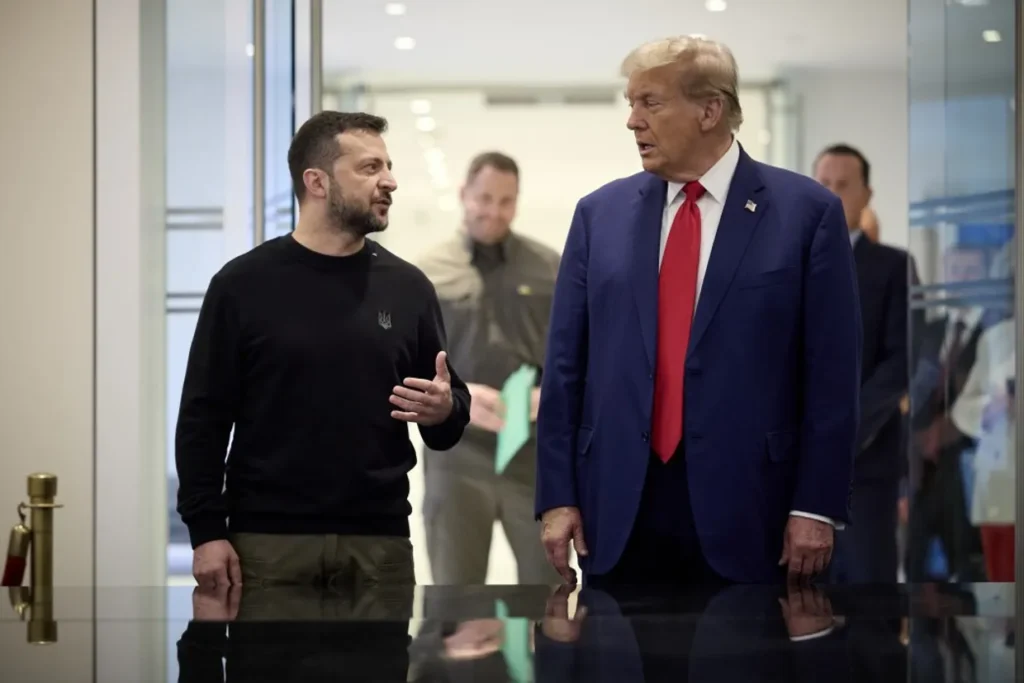Here’s Proof the Republicans Are Still Devoted Servants of Corporate America
A year ago, a freight train carrying toxic chemicals derailed in East Palestine, Ohio, displacing hundreds of residents and poisoning the air and water—in some cases, to this very day. Amid the tragedy, Republicans saw opportunity. They criticized President Biden, of course, for not visiting the site of the disaster, but they also set their sights on a historically rare target for the GOP: corporate elites. Republicans joined Democrats in grilling the CEO of rail conglomerate Norfolk Southern, which owned the derailed train, and a rail safety bill introduced by Ohio’s two senators—Republican J.D. Vance and Democrat Sherrod Brown—appeared to gain steam. The GOP’s response was seen as further evidence of its growing embrace of populism. “I think that this tragedy that happened in East Palestine is an opportunity for Republicans that have been looking for opportunities to distinguish themselves from the neoliberal set in the party to do so,” Saurabh Sharma, the president of the right-wing think tank American Moment, told Vox at the time. Republicans had long backed deregulation—the Trump administration had even loosened rail safety laws in 2018—but the party appeared to be taking a different tack. A year after the derailment, it’s clear that this was a political mirage. Vance and Brown’s bill has gone nowhere, thanks to fierce opposition from industry lobbyists—41 of them for Norfolk Southern alone—who found more than enough sympathetic ears among Republican members of Congress. Far from being a sign of an ideological shift within the GOP, the political aftermath of the East Palestine derailment now looks somewhat different: further evidence of the party’s cynical embrace of populist rhetoric as it pursues the same plutocratic agenda it has for generations, to the detriment of the common man.After the disaster in East Palestine, executives from Norfolk Southern were contrite. They went to the site of the accident. They apologized. They appeared before Congress. They apologized some more. Again and again, they promised to do better. Norfolk Southern CEO Alan Shaw went as far as to say that he and his company were open to new regulations, telling Congress that they would “support legislative efforts to enhance the safety of the freight rail industry” and had identified “areas in which we believe Congress could go further with safety legislation.” But, according to recent reporting from The Washington Post, behind the scenes Norfolk Southern and other rail companies took a much different approach. While publicly apologizing, they were spending millions—$17 million, per the Post—on lobbying efforts to block new regulations. “Some of the chief beneficiaries of industry cash were Republicans, who initially attacked the Biden administration over its handling of the East Palestine derailment before opposing or slowing down safety legislation,” Tony Romm found. The industry aggressively lobbied against all reforms, including relatively minor ones like “efforts to ensure that engineers have special breathing equipment onboard to new rules that would require miles-long trains to be staffed with more than one person.” At the same time, the industry has pushed Congress to essentially preserve the status quo—to let rail companies decide what’s best for them, which is exactly the situation that led to the derailment in East Palestine. The industry’s Republican allies have obliged, quietly blocking legislation and holding zero hearings on rail safety since last spring.It’s no wonder, then, that rail safety has gotten even worse. The New York Times reported last week that derailments at the top five freight railroads rose last year, and “there was a steep increase in the mechanical problem … that regulators think caused the derailment” in East Palestine. “These figures show the railroad industry’s safety standards are getting worse,” Vance told the Times. But not enough of his GOP colleagues care, apparently.This is a familiar saga in Washington, in which Republicans have their cake and eat it too: exploiting the derailment for maximal political benefit, shielding those responsible for it, raking in campaign donations, and ultimately ensuring—against the will of a majority of Americans—that no progress is made to address a critical issue. It shows just how hard it is to get anything done in Washington these days, even when it first appears there’s sufficient bipartisan support (see: the now-dead immigration deal). Most importantly, though, it is a reminder of the shallowness of the supposed populist rebrand of the GOP. Some Republicans, like Vance, undoubtedly are serious about standing up to corporate power, at least in some forms. But they are still rarities within the chamber (unless you count the grandstanding interrogations of tech CEOs, which isn’t quite the same as attacking, say, the head of ExxonMobil). Ultimately, the ideological makeup and operating of the GOP in Congress is little different now than it was 10 years

A year ago, a freight train carrying toxic chemicals derailed in East Palestine, Ohio, displacing hundreds of residents and poisoning the air and water—in some cases, to this very day. Amid the tragedy, Republicans saw opportunity. They criticized President Biden, of course, for not visiting the site of the disaster, but they also set their sights on a historically rare target for the GOP: corporate elites. Republicans joined Democrats in grilling the CEO of rail conglomerate Norfolk Southern, which owned the derailed train, and a rail safety bill introduced by Ohio’s two senators—Republican J.D. Vance and Democrat Sherrod Brown—appeared to gain steam.
The GOP’s response was seen as further evidence of its growing embrace of populism. “I think that this tragedy that happened in East Palestine is an opportunity for Republicans that have been looking for opportunities to distinguish themselves from the neoliberal set in the party to do so,” Saurabh Sharma, the president of the right-wing think tank American Moment, told Vox at the time. Republicans had long backed deregulation—the Trump administration had even loosened rail safety laws in 2018—but the party appeared to be taking a different tack.
A year after the derailment, it’s clear that this was a political mirage. Vance and Brown’s bill has gone nowhere, thanks to fierce opposition from industry lobbyists—41 of them for Norfolk Southern alone—who found more than enough sympathetic ears among Republican members of Congress. Far from being a sign of an ideological shift within the GOP, the political aftermath of the East Palestine derailment now looks somewhat different: further evidence of the party’s cynical embrace of populist rhetoric as it pursues the same plutocratic agenda it has for generations, to the detriment of the common man.
After the disaster in East Palestine, executives from Norfolk Southern were contrite. They went to the site of the accident. They apologized. They appeared before Congress. They apologized some more. Again and again, they promised to do better. Norfolk Southern CEO Alan Shaw went as far as to say that he and his company were open to new regulations, telling Congress that they would “support legislative efforts to enhance the safety of the freight rail industry” and had identified “areas in which we believe Congress could go further with safety legislation.”
But, according to recent reporting from The Washington Post, behind the scenes Norfolk Southern and other rail companies took a much different approach. While publicly apologizing, they were spending millions—$17 million, per the Post—on lobbying efforts to block new regulations. “Some of the chief beneficiaries of industry cash were Republicans, who initially attacked the Biden administration over its handling of the East Palestine derailment before opposing or slowing down safety legislation,” Tony Romm found.
The industry aggressively lobbied against all reforms, including relatively minor ones like “efforts to ensure that engineers have special breathing equipment onboard to new rules that would require miles-long trains to be staffed with more than one person.” At the same time, the industry has pushed Congress to essentially preserve the status quo—to let rail companies decide what’s best for them, which is exactly the situation that led to the derailment in East Palestine. The industry’s Republican allies have obliged, quietly blocking legislation and holding zero hearings on rail safety since last spring.
It’s no wonder, then, that rail safety has gotten even worse. The New York Times reported last week that derailments at the top five freight railroads rose last year, and “there was a steep increase in the mechanical problem … that regulators think caused the derailment” in East Palestine. “These figures show the railroad industry’s safety standards are getting worse,” Vance told the Times. But not enough of his GOP colleagues care, apparently.
This is a familiar saga in Washington, in which Republicans have their cake and eat it too: exploiting the derailment for maximal political benefit, shielding those responsible for it, raking in campaign donations, and ultimately ensuring—against the will of a majority of Americans—that no progress is made to address a critical issue. It shows just how hard it is to get anything done in Washington these days, even when it first appears there’s sufficient bipartisan support (see: the now-dead immigration deal).
Most importantly, though, it is a reminder of the shallowness of the supposed populist rebrand of the GOP. Some Republicans, like Vance, undoubtedly are serious about standing up to corporate power, at least in some forms. But they are still rarities within the chamber (unless you count the grandstanding interrogations of tech CEOs, which isn’t quite the same as attacking, say, the head of ExxonMobil). Ultimately, the ideological makeup and operating of the GOP in Congress is little different now than it was 10 years ago: The Republicans continue to protect entrenched corporate interests at all costs, even when those costs are borne by the voters they rely on to remain in power.



